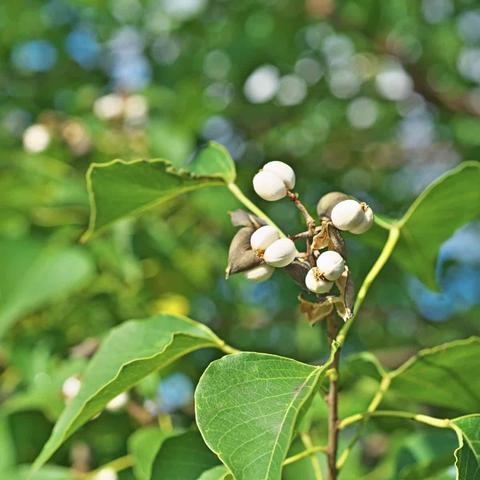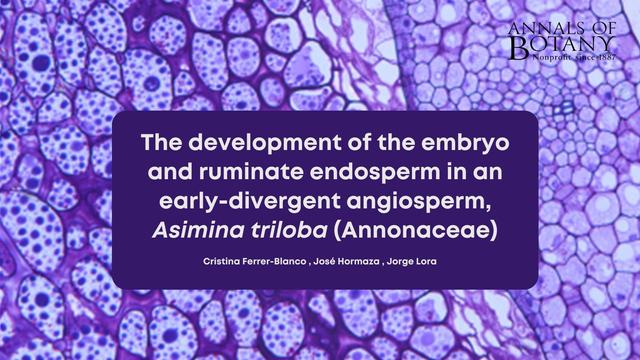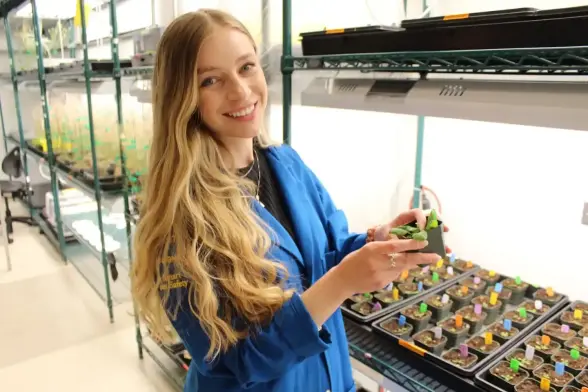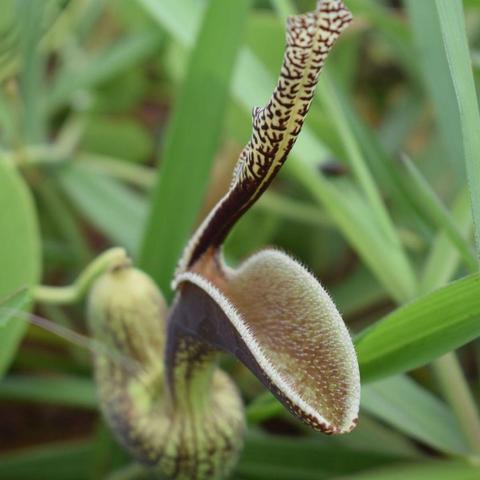Stability in plant–pollinator communities across organizational levels: present, gaps, and future by Ainhoa Magrach and co-authors
Recent searches
Search options
#plantscience
How Is Human Mismanagement Reshaping the Biodiversity of American Forests?
https://doi.org/ph36
Human-introduced trees are silently reshaping US forests, eliminating rare native species.
#Botany #PlantScience #InBrief
Why does this matter?
Understanding how these unique seeds develop can reveal how different reproductive strategies evolved in flowering plants and help preserve biodiversity in early-divergent lineages like Annonaceae. (10/10)
Triggering parasitic plant ‘suicide’ to help farmers
Parasitic weeds devastate crops in food-insecure regions by hijacking plant signals. Scientists have found a way to trick these weeds into germinating when no host is present, causing them to die. Using engineered microbes, they’re producing key plant hormones to potentially turn this natural system into a powerful defense.
https://globalplantcouncil.org/triggering-parasitic-plant-suicide-to-help-farmers/ via UCRiverside #PlantScience #Science #Plants #Weeds #Food #foodsecurity
Unlike most plants that attract pollinators with rewards, Aristolochia esperanzae traps them with specialized hairs. New research confirms these structures are essential for reproduction.
Read the full story: wp.me/pdRZhH-lUH
Morpho-physiological and yield traits for selection of drought tolerant Urochloa grass ecotypes by Taise Almeida Conceição and co-authors
New research in @jxbotany.bsky.social shows cherry trees bloom up to 10 days earlier due to climate change. Scientists now understand how temperature affects flower development, paving the way for more resilient varieties.
Read more: https://wp.me/pdRZhH-lUz
Guiding seed movement: environmental heterogeneity drives genetic differentiation in Plathymenia reticulata, providing insights for restoration by Taise Almeida Conceição and co-authors
The Secret of a Plant's Sexual Attraction Is Betrayed by the Shadow of Its Scent
https://doi.org/phng
Botanists discover that plants seeking to sexually attract a pollinator may be hiding their stocks of potent perfumes in overlooked alkenes.
Plants stand still but studying them requires movement. Dr. Seheno Andriantsaralaza explains the challenges of plant research and her work with ancient baobabs in Madagascar at wp.me/pdRZhH-lSc
This JSE Outstanding Paper Award-winner by Liu et al. draws a baseline for future research on the #ecological and #evolutionary consequences of #migration and introgression of Phragmites australis under global change. Find it here!
https://doi.org/10.1111/jse.12672
#PlantScience #evolution #botany
A genomic analysis of fine aroma cocoa from northern Peru revealed genetic divergence and evolutionary patterns within Theobroma cacao.
The study identified 3 distinct genetic groups and estimated divergence times, suggesting that fine aroma cocoa diversified during the Pleistocene. The findings offer insights into cacao's genetic structure and could aid in breeding and conservation efforts.
https://globalplantcouncil.org/mapping-maternal-lineages-of-fine-aroma-cocoa-through-chloroplast-dna/ #PlantScience #Cacao #Agriculture #PlantGenetics #Science
Evolutionary reversal of physical dormancy to nondormancy: evidence from comparative seed morphoanatomy of Argyreia species (Convolvulaceae) by D. Nethani H Gunadasa and co-authors
The Angiosperms353 probe set proved incredibly powerful. This study lays the foundation for deeper morphological studies, promising new insights into the macroevolutionary trajectories of Boraginales. (8/8)
Check the newly published article ‘An updated phylogeny of Boraginales based on the Angiosperms353 probe set: a roadmap for understanding morphological evolution’ in @AnnBot by Maria-Anna Vasile et al.
(1/8)
Marcelo Aizen: “Pollination is More Than Just Animals Visiting Flowers”
New interview in @botanyone
https://botany.fyi/r66yga
New research reveals chocolate faces dual threats from insufficient pollination and rising temperatures. Scientists found hand pollination boosted cocoa yields by 20%. Discover sustainable solutions to support millions of farmers worldwide.
#ArtificialIntelligence / #MachineLearning-assisted near-infrared/optical biosensing for #plant #phenotyping
by Xu Wang, Xue Zhou, Liyike Ji, Kai Shen
https://doi.org/pfrs via Machine Learning and Artificial Intelligence in Chemical and Biological Sensing
#PlantScience
The Wisdom of Green-Thumbed Crowds Brings Expertise to Western Australia
https://botany.fyi/engijl
Experts validate the surprising accuracy of plant identifications on iNaturalist, enhancing conservation data in Western Australia.










